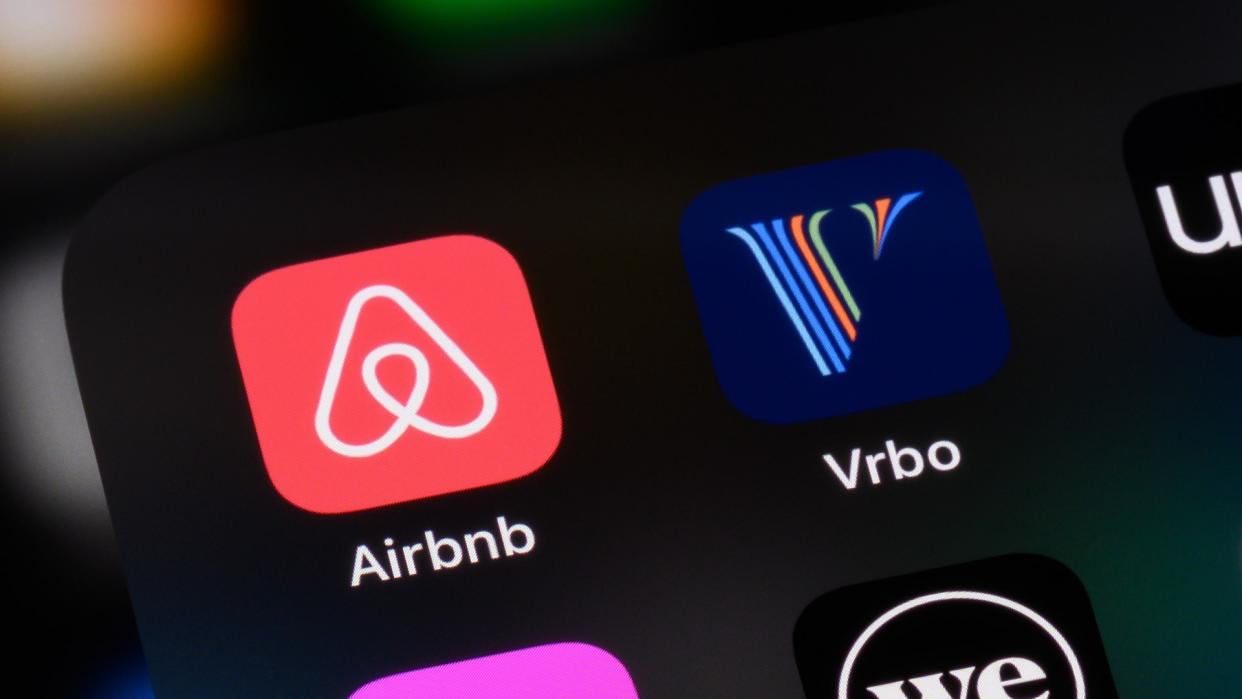Airbnb vs. Vrbo: Which Makes More Sense Financially for Hosts?

Hosting a rental property on platforms such as Airbnb or Vrbo is a great way to generate passive income streams — money not derived from active involvement such as a salary.
Find Out: 7 Ways People Destroy the Value of Their Homes, According to a Real Estate Agent
Discover How: 5 Unusual Ways To Make Extra Money (That Actually Work)
And you can list pretty much any property you have, whether it’s a castle, a cabin or even a yurt.
According to Upgraded Points, Vrbo offers 2 million properties in 190 countries, while Airbnb has 7 million rentals in 191 countries.
Yet, choosing which platforms to list your properties on can be difficult. While they are both (generally speaking) similar in what they offer, these platforms also have some salient distinctions which can end up making a difference in how much money hosts end up pocketing. Understanding these differences can help hosts get a better idea of how much earnings they can generate via their properties.
Here are some of the differences between these two hosting platforms:
Airbnb
What you can rent: On Airbnb you can list virtually any property, as long as it meets certain requirements. For instance, it needs to be only used for lodging. In the case of mobile homes, boats and yachts, they need to be semi-permanently attached to a set location and must be parked in a privately-owned space, according to the platform. On the other hand, you cannot list vehicles or boats that are intended for mobile use.
Listing fees: You can list your property for free.
Service fees: Most hosts pay a flat service fee of 3% of the booking subtotal. For instance, if you charge $100 a night for a 3-night stay, plus $60 for a cleaning fee, the booking subtotal is $360, as Airbnb explained. The host service fee, in that case, would be $10.80 deducted, and the service fee of 14% would amount to $50.40. The host would earn $349.20, while the guest would pay $410.40.
Cancellation policies: You can choose a variety of options. These include:
Flexible — guests can cancel until 24 hours before check-in for a full refund
Moderate — guests have five days before check-in to cancel and if they cancel after that, the host will be paid each night they stay, plus one additional night, plus 50% for all unspent nights.
Firm — guests must cancel at least 30 days before check-in. In the case of a cancellation between seven and 30 days before, the host will be paid 50% of the total stay and if it’s under seven days, the host will be paid in full.
Strict — guests must cancel within 48 hours of booking, and the cancellation must occur at least 14 days before check-in. In that case, if it’s more than 14 days, you’ll be paid 50% for all nights- and if it’s between seven and 14 days, you will be paid half of the stay.
The options also include a strict long-term policy, a flexible long-term policy, a non-refundable option and a super strict 30-days and 60-days policies.
Other specifics: Airbnb offers services for hosts such as guest identity verification, which checks details such as name, address and government ID, according to its website. It also has a “reservation screening,” which analyzes factors in each reservation to show if they are potentially “high risk” for disruptive parties, for instance.
Also notable, it includes a $3 million damage protection — Airbnb will pay for damage caused by guests, including deep cleaning, damage to art and valuables, boats and cars, pet damage and income loss. The platform also offers a $1 million liability insurance, in case a guest gets injured or their belongings are stolen for instance. Finally, it also has a 24-hour safety line to safety agents, day or night.
How you get paid: You choose from several payment methods including bank transfers, PayPal, Payoneer debit cards and Western Union.
Vrbo
What you can rent: According to the website, your listing must accurately portray the rental, including property address. Other than that, it needs to include contact details for ongoing correspondence, property type, the number of bedrooms/bathrooms and how many people it accommodates.
Listing fees: You can list your property for free.
Service fees: You can choose from two listing models, either pay-per-booking or via a subscription:
Pay-per-booking — you pay commission fees for the bookings you receive. The booking fee is 3% payment processing and 5% commission fee, according to the platform. As Vrbo explained, this offers more flexibility as it allows you to only accept bookings for the dates you want to rent.
Subscription model — you have to pay an annual fee of $499 upfront. Under this model, you can list as many properties as you want, with no additional charges. In addition, this gives you access to features such as international property listing, a reservation Manager, the ability to upload up to 50 photos, an interactive map and a reservation calendar, according to Vrbo.
Other specifics: Vrbo offers a $1 million in primary liability coverage and if you already have liability protection, you can consider this additional coverage, according to the platform. This included travelers injuries claims and property damages.
Cancellation fees: On Vrbo, you can choose your cancellation policies. These include:
No refund — refunds aren’t allowed
Strict– 100% refund 60 days before check-in, no refund after 60 days
Firm — 100% refund 60 days before check-in, 50% refund 30-60 days before check-in
Moderate — 100% refund 30 days before check-in, 50% refund 14-30 days before check-in
Relaxed — 100% refund 14 days before check-in, 50% refund 7-14 days before check-in
How you get paid: On Vrbo, you get paid through the platform, and the payments are generally sent one business day after checks in.
More From GOBankingRates
This article originally appeared on GOBankingRates.com: Airbnb vs. Vrbo: Which Makes More Sense Financially for Hosts?